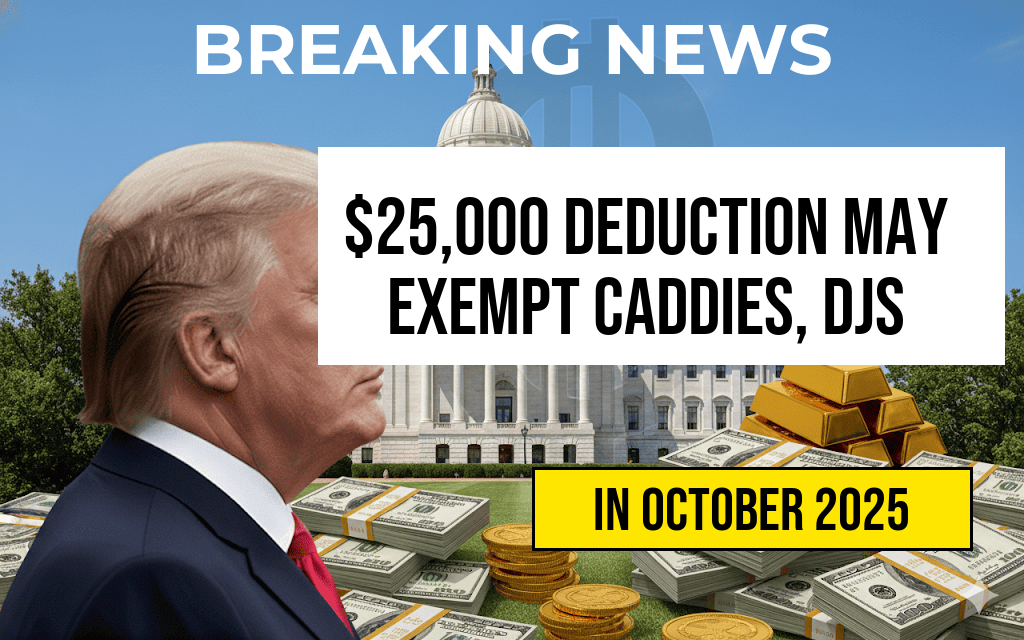As tax season approaches, proposed rules from the IRS are stirring conversations among service industry workers and employers alike. The new regulations confirm that tips, a significant portion of income for many workers, will not be subject to taxation. This means that employees could see an increase of approximately $1,300 in their annual take-home pay, a welcome relief for those in hospitality and service sectors. The IRS aims to clarify the tax treatment of tips, which are often a gray area in the tax code. This move not only seeks to simplify tax reporting but also to alleviate financial pressures on workers who rely heavily on gratuities for their earnings.
Understanding the New IRS Guidelines
The IRS has proposed rules that explicitly state that tips received by employees will not be taxed if they are below a certain threshold. This change is expected to impact millions of workers across the nation, particularly in restaurants, bars, and other service-oriented businesses. The guidelines indicate that the first $20 of tips received in a month will remain untaxed, making it easier for workers to retain more of their earnings.
Implications for Service Workers
For many service workers, tips can constitute a large part of their income. According to research from the National Restaurant Association, approximately 70% of restaurant employees depend on tips as a primary income source. The proposed tax exemption could significantly enhance their financial situation, allowing for greater spending power during a time when inflation has affected everyday expenses.
- Financial Relief: The proposed rules could lead to an average increase of $1,300 in annual income for many employees.
- Increased Clarity: The IRS aims to eliminate confusion regarding the taxability of tips, simplifying the reporting process.
- Support for Workers: This initiative is expected to provide much-needed support for the service industry, which has faced numerous challenges in recent years.
How to Calculate Your Increased Take-Home Pay
To understand how much more money workers can keep, let’s break down the calculations based on the proposed rules. Assuming a worker receives tips exceeding the $20 threshold each month, the year-end calculation would look like this:
| Months | Monthly Tips | Total Tips (Yearly) | Tax-Free Amount | Net Income After Taxes |
|---|---|---|---|---|
| 12 | $150 | $1,800 | $240 (12 months x $20) | $1,560 |
In this example, if a worker receives an average of $150 in tips each month, they would earn a total of $1,800 in tips for the year. With the new rules, $240 would be exempt from taxes, leading to a net income of $1,560 from tips alone. This increase could change the financial landscape for many, particularly as they prepare to file their taxes.
Feedback from Industry Leaders
Industry leaders have expressed support for the proposed rules, highlighting the potential positive impact on employee morale and retention. “This is a significant step in recognizing the importance of tips in our industry,” said a spokesperson from the National Restaurant Association. “By removing the tax burden on tips, we can help our employees feel more secure in their income, especially as we navigate the challenges posed by inflation.”
The Road Ahead
As these proposed rules advance, stakeholders in the service industry are encouraged to engage with their local representatives to ensure that the final regulations reflect the needs of workers. Many are hopeful that these changes will be implemented in time for the current tax season, allowing employees to benefit from increased take-home pay sooner rather than later.
For further information on the proposed IRS regulations, interested parties can visit the IRS website or review coverage from reputable sources such as Forbes and the National Restaurant Association.
Frequently Asked Questions
What are the proposed rules regarding taxes on tips?
The proposed rules confirm that there will be no tax on tips during tax season, allowing employees who receive tips to keep their full earnings without additional tax burdens.
How does this change affect my overall tax liability?
This change means that tips will not be included in your taxable income, potentially resulting in a $1,300 increase in your take-home pay, as you won’t have to pay taxes on those earnings.
Who will benefit from the ‘No Tax on Tips’ rule?
Employees in service industries, such as restaurants and hospitality, who frequently receive tips will benefit the most, as they can keep more of their earnings.
When do these proposed rules take effect?
The exact implementation date of the proposed rules has not been confirmed, but they are expected to take effect in time for the upcoming tax season.
How can I calculate my potential increase in earnings from this rule?
You can calculate your potential increase by estimating your average monthly tips and multiplying by the months you work during the tax season, leading to an approximate $1,300 increase in your income.






